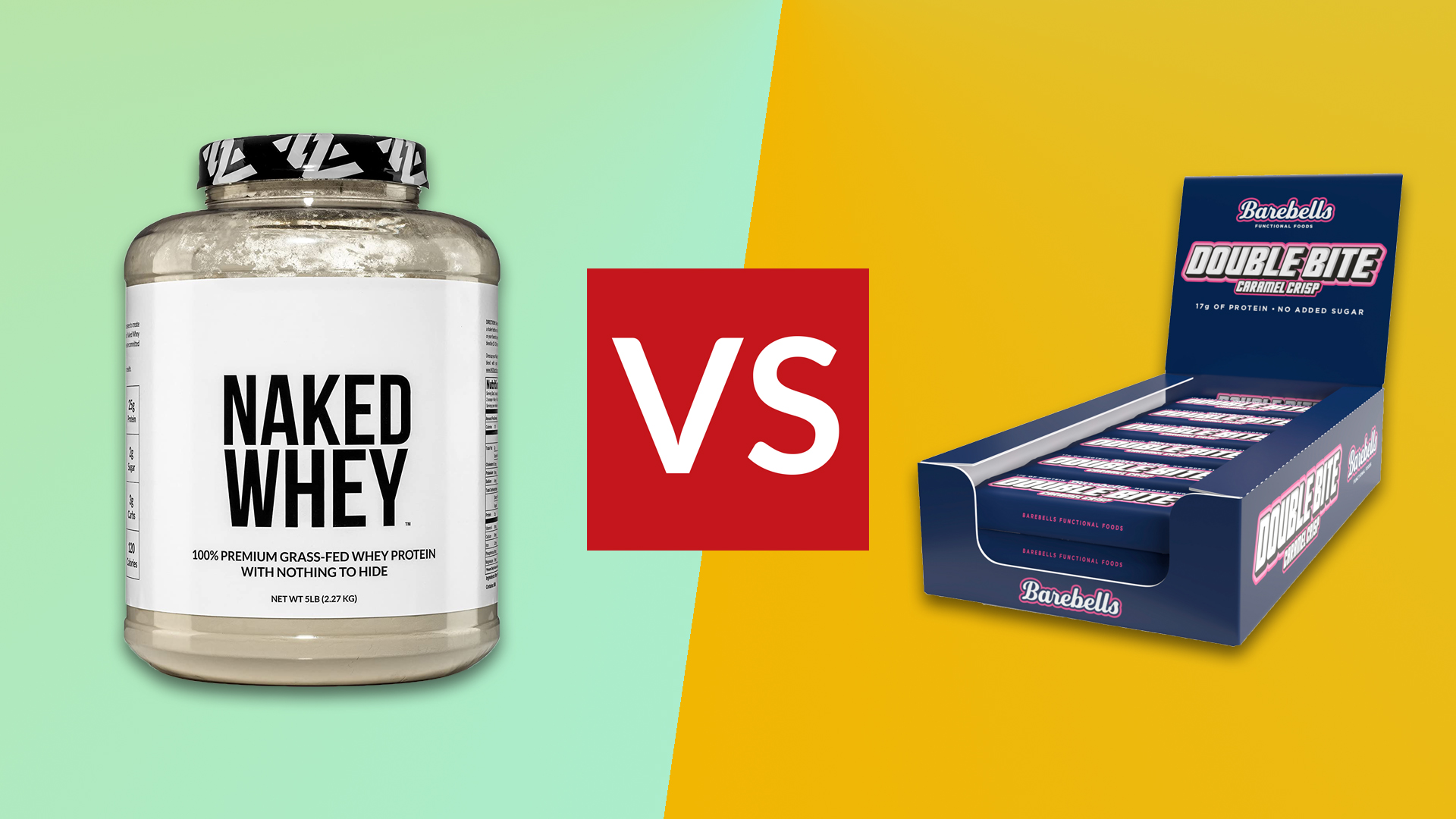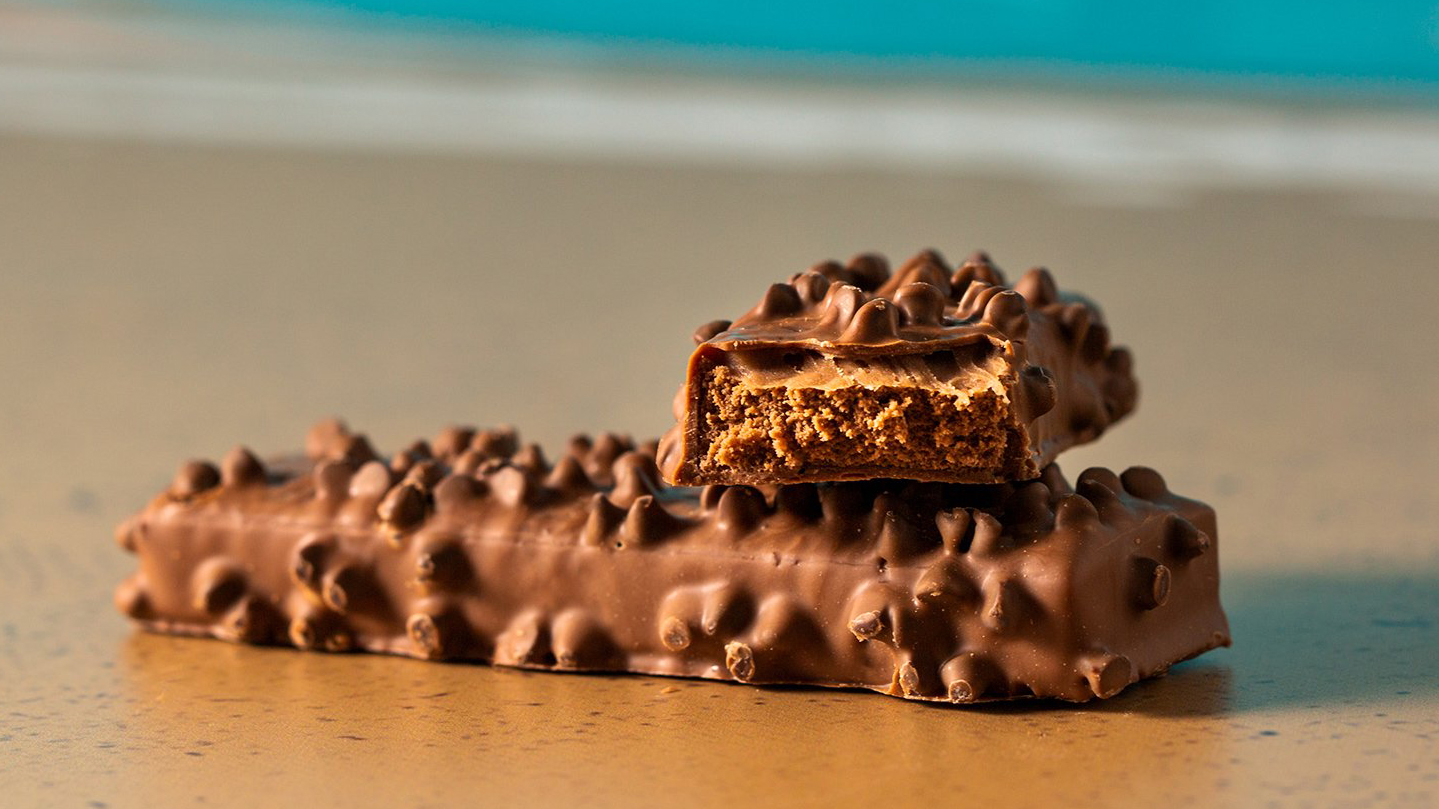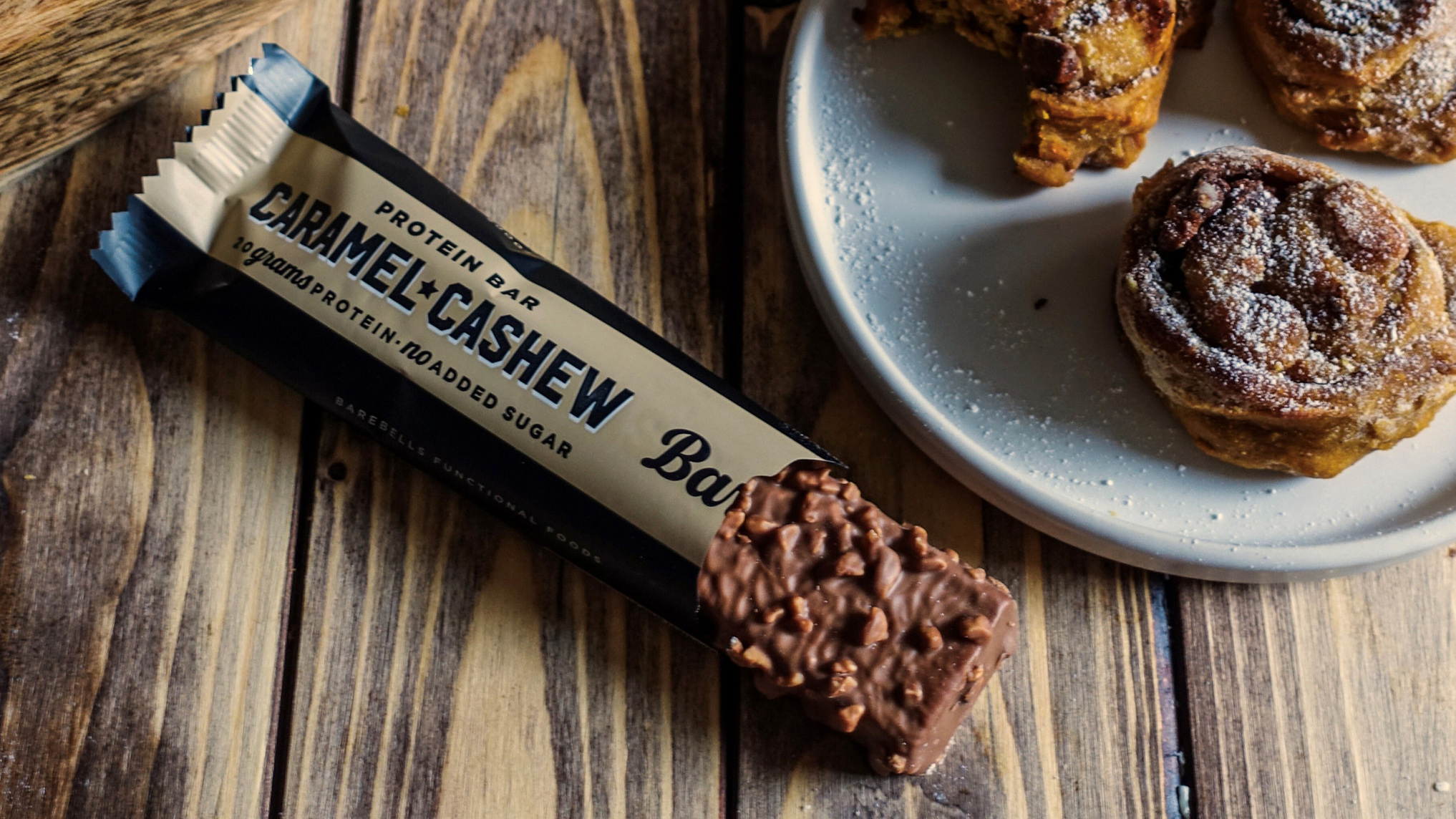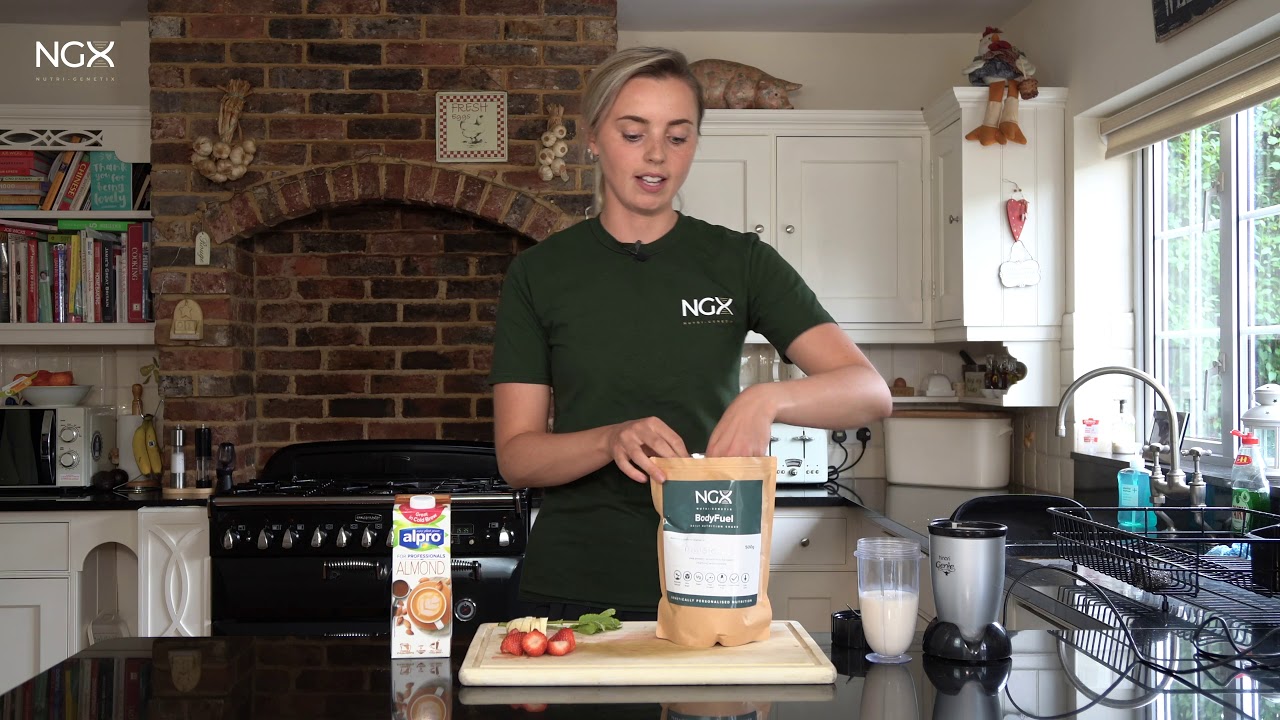Protein powder vs protein bar: which is better… And are they good for you?
Protein powder vs protein bar: the pros and cons of both dairy and vegan protein supplements


Get all the latest news, reviews, deals and buying guides on gorgeous tech, home and active products from the T3 experts
You are now subscribed
Your newsletter sign-up was successful
Protein powder vs protein bar: which one is better for quick gains and weight loss?
The best protein powder and the best protein bars have a lot in common. Obviously, they are high in protein, have a low sugar content and provide an extremely convenient way to sneak some extra protein into your diet. Generally speaking, you would like to cover your daily protein need from a variety of whole food sources but admittedly, cooking a chicken breast or sautéing tofu during the day is not always the best option for everyone.
That's when protein supplements come into play. Notice the word 'supplement': you don't want to cover all your daily protein needs using either protein powder or protein bars. But having a quick protein shake mid-morning or a protein bar after the workout can effectively top up your protein levels, help you recover faster, and curb cravings.
Not sure how to use protein powder? Here are 5 simple protein blender smoothies to get you started.

Protein powder vs protein bar – What's inside?
Protein powders are high in protein and low in carbohydrates and fats. This applies to both the whey and whey variety. As a rule of thumb, you would like to have at least 22 grams of protein in each 30-gram serving for it to be considered a decent quality product. If the protein concentration is lower than this, you might find more additives and/or sugar in the product, which is not ideal.
Protein bars, on the other hand, have a higher calorie and carbohydrate content than powders. They have a higher fibre content too, which is not a bad thing because this also means that protein bars will leave you more satisfied than protein shakes. Chewing on protein bars give these type of snacks the competitive edge when it comes to feeling fuller compared to chugging down protein shakes.
The higher calorie content of protein bars doesn't mean they are actually high in calories. Compared to a Double Decker bar, even the worst protein bar is a better choice, nutritionally speaking. Decent protein bars contain anything between 200-250 calories and 15-25 grams of protein per bar. Try to avoid protein bars with high sugar content.
Get all the latest news, reviews, deals and buying guides on gorgeous tech, home and active products from the T3 experts

Is protein powder better than protein bars?
Consuming protein powder is 'cleaner' than eating protein bars. This means that protein powders generally contain much less of everything else but protein, as opposed to protein bars which have some fibre, some carbohydrates etc. Protein powders allow people to fine-tune their macronutrient mix more precisely, not to mention that protein from a less-fibrous protein shake will get absorbed quicker than protein from a bar.

Is it bad to eat a protein bar every day?
As long as you don't have industrial amounts of protein bars every day, you shouldn't experience any negative health effects from eating them. The dose makes the poison, as the saying goes, and almost everything consumed in high quantities will have a negative impact on health. This applies to even water: overhydration occurs when the amount of salt and other electrolytes in your body become too diluted. Do drink some water during the day, though.
Protein bars can be considered processed food, and you want to avoid including only processed food in your diet. That said, a healthy diet can include low-sugar, high-protein bars, not to mention, having a protein bar in your gym bag is also a good way to avoid snacking on something less healthy when hunger strikes.

Protein powder vs protein bar – Price and availability
Neither protein powder nor protein bars are expensive and are available both online and offline. Protein bars are probably more expensive than similar-sized chocolate bars but also a 100-times healthier, so they are worth the premium.
In the UK, we recommend getting your protein powder fix from MyProtein, the newly-rebranded bulk, The Organic Protein Co., The Plant Era, Foodspring, The Protein Works, SF Nutrition and/or Amazon (all retailer links).
For people living in the US, it would be a shame not to give Dioxyme or Naked Nutrition a try, and ONNIT also sells decent quality protein. There is always Best Buy, Walmart and Amazon, too (all retailer links)
As for protein bars, we can wholeheartedly recommend Barebells and Grenade protein bars if you fancy giving these types of protein snacks a go. Almost all of the above companies also sell protein bars too, or something equivalent, like protein flapjacks, protein cookies, protein balls etc. The more adventurous of you can give collagen coffee a try: this is a high protein instant coffee that has only the slightest aftertaste, mostly masked by the bitter taste of coffee.

Matt Kollat is a journalist and content creator for T3.com and T3 Magazine, where he works as Active Editor. His areas of expertise include wearables, drones, action cameras, fitness equipment, nutrition and outdoor gear. He joined T3 in 2019.
His work has also appeared on TechRadar and Fit&Well, and he has collaborated with creators such as Garage Gym Reviews. Matt has served as a judge for multiple industry awards, including the ESSNAwards. When he isn’t running, cycling or testing new kit, he’s usually roaming the countryside with a camera or experimenting with new audio and video gear.